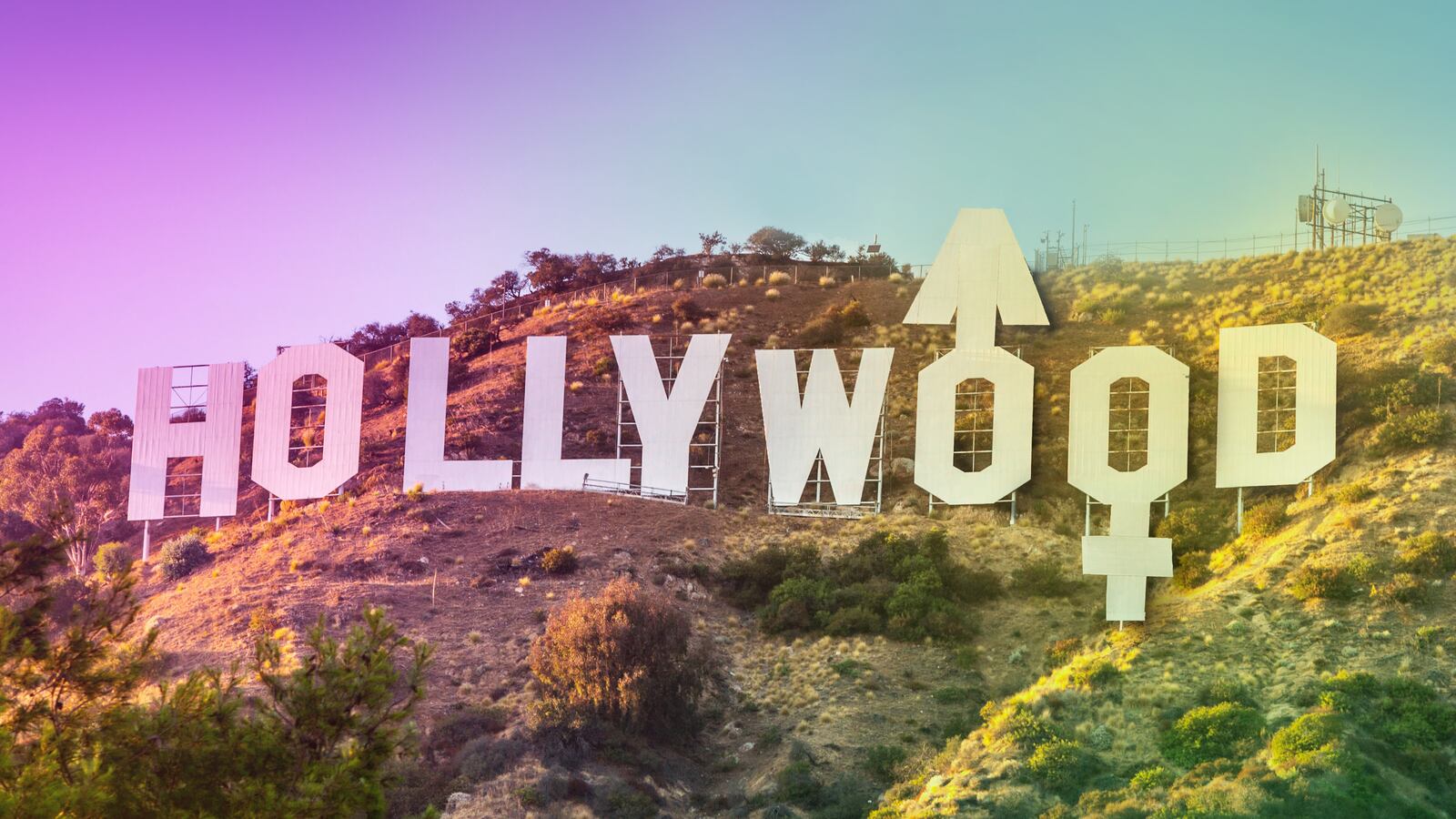Hollywood’s perceived gender bias has become a cause célèbre in recent years thanks to Patricia Arquette, Meryl Streep, Jennifer Lawrence, and other powerful women in the industry who have spoken out about the issue.
Now, in a move that brings a new level of seriousness to their cause, the feds are investigating gender discrimination in the industry.
The American Civil Liberties Union (ACLU) announced the news on Wednesday, a year after they first urged the U.S. Equal Employment Opportunity Commission to investigate discrimination against women film and TV directors.
Seven months after the EEOC began interviewing female directors, they’re now conducting the same process with studio executives, showrunners, male directors, agents, and other industry players.
“We are encouraged by the scope of the government’s process and are hopeful that the government will be moving to a more targeted phase,” said Melissa Goodman, director of the LGBT, Gender and Reproductive Justice Project at the ACLU of Southern California, in a statement released Wednesday.
The ACLU’s letter to the government cited a report from the Directors Guild of America that found women represented 14 percent of television directors in 2013 and 2014, as well as a USC study which found only 1.9 percent of directors of the 100 highest-grossing films during those same years were women.
While the EEOC has not confirmed or denied the investigation, since they are required by law to keep such matters confidential, EEOC spokeswoman Justine Lisser wrote in an email to The Daily Beast that they “received the ACLU’s letter containing information documenting the under-representation of women directors” in film and TV, and “had further discussions with the ACLU about their data and conclusions.”
Lenora Lapidus, director of the Women’s Rights Project at ACLU, confirmed in an interview with The Daily Beast that the EEOC met with more than 100 people in the industry, including over 50 female directors, during the first round of interviews.
As much as prominent female voices in Hollywood like Patricia Arquette have helped bring national awareness to the industry’s alleged gender bias, Maria Giese, one of the female directors interviewed by the EOCC, deserves credit for helping to spearhead the investigation.
Giese began working on the issue at the end of 2011, when she met with the Directors Guild of America.
“The DGA fought me so ferociously and were so hostile to the activist efforts I was making inside the guild to increase hiring of women directors,” she told The Daily Beast. “I realized there was a huge conflict of interest—here was a union run by a vast majority of male members pretending to have an interest in hiring mandates of women when they own the lion’s share of the pie.”
She first met with the ACLU in February 2013, and again in April and May, and explained why the issue was so significant and how they could possibly mitigate it, either by coming up with solutions to take legal actions themselves or by getting the EEOC involved.
She had previously confronted EEOC and said that they were more interested in one woman filing a lawsuit with smoking gun evidence against a studio than in getting involved themselves. She now believes that government involvement is the only way to effect real change.
Very few women directors have been as vociferously critical of the industry as Giese, who admits she has essentially sacrificed her career in doing so.
“I knew I would risk getting blacklisted in an industry that is run on personal relationships,” she said. “But I hadn’t been able to get any work for a very long time and I felt I had nothing left to lose.”
There are only a handful of women directors who have achieved enormous success in Hollywood, most notably Kathryn Bigelow. Giese said that roughly 4 percent of studio features are directed by women, and nearly 100 percent of those women are movie stars, pop stars, or relatives of movie moguls (Angelina Jolie, Drew Barrymore, Sofia Coppola, and Jodie Foster, to name a few).
“There’s no guarantees that this investigation will amount to any change, and that puts women directors and allies of women directors in a precarious position if they choose to speak out right now,” said another female director who asked to remain anonymous.
If the EEOC found evidence of widespread discrimination in Hollywood, they could potentially sue studios or seek to negotiate a solution that would increase their hiring of women in various roles.
“The toughest hurdle for the EEOC, if they decided to sue, is that the Supreme Court has made it harder to bring class action than it used to be,” said Andrew Friedman, a Los Angeles-based attorney specializing in employment discrimination.
Still, the EEOC would have a better chance in court than private plaintiffs, he said. “Courts seem more reluctant to give injunctive relief to individuals as opposed to a government agency.”






